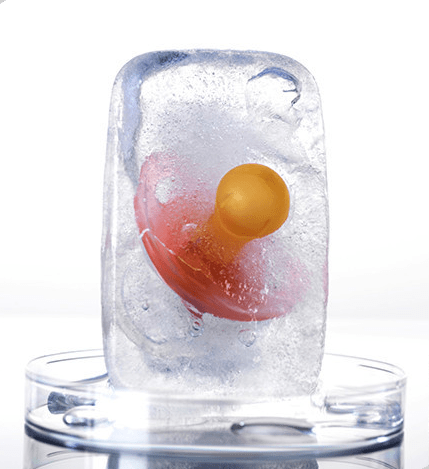
Cryopreservation
CELLS AND TISSUE ARE FROZEN AND STORED IN LIQUID NITROGEN AT -196° CELSIUS. THE TERM USED FOR THIS TECHNIQUE COMES FROM THE ANCIENT GREEK WORD ‘KRYOS’, WHICH MEANS ‘COLD’.
The process is chosen for reasons as varied as providing an additional chance for pregnancy, or saving embryos in the face of certain medical treatments.